This list is constantly updated. Please contact us to have listing added, removed, or updated.
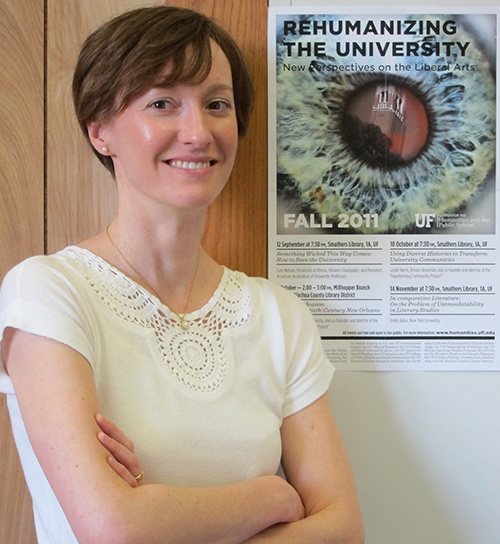 Sophia K. Acord is Associate Director of the Center for the Humanities and the Public Sphere, and Lecturer in the Department of Sociology and Criminology & Law. As a cultural sociologist, she studies the impact of digital technologies on knowledge making and scholarly communication in the humanities. She also works in program development and evaluation to increase and understand the profile of humanistic scholarship at UF and in the broader community.
Sophia K. Acord is Associate Director of the Center for the Humanities and the Public Sphere, and Lecturer in the Department of Sociology and Criminology & Law. As a cultural sociologist, she studies the impact of digital technologies on knowledge making and scholarly communication in the humanities. She also works in program development and evaluation to increase and understand the profile of humanistic scholarship at UF and in the broader community.
Sean Adams, History
Susan Alteri, Smathers Libraries
Shelley Arlen, Smathers Libraries
Paul Avery, Physics
Angelos Barmpoutis, Digital Worlds Institute
Wendy-lin Bartels, Florida Climate Institute
Howard Beck, Linguistics, RET
Eleni Bozia, Classics
Kyle Bridge, History
George Aaron Broadwell is the Elling Eide Professor of Anthropology. His research is on indigenous languages of Mexico and the Southeastern United States. He is the creator of two online dictionaries of Mexican languages (copalatriqui.webonary.org, sandionisiozapotec.webonary.org) and is a collaborator in a DH project on the interpretation of texts from Colonial Valley Zapotec (https://ds-omeka.haverford.edu/ticha/en/index.html). He is current working on a digital text explorer for 17th century texts in Timucua, the indigenous language of the original inhabitants of North Florida.
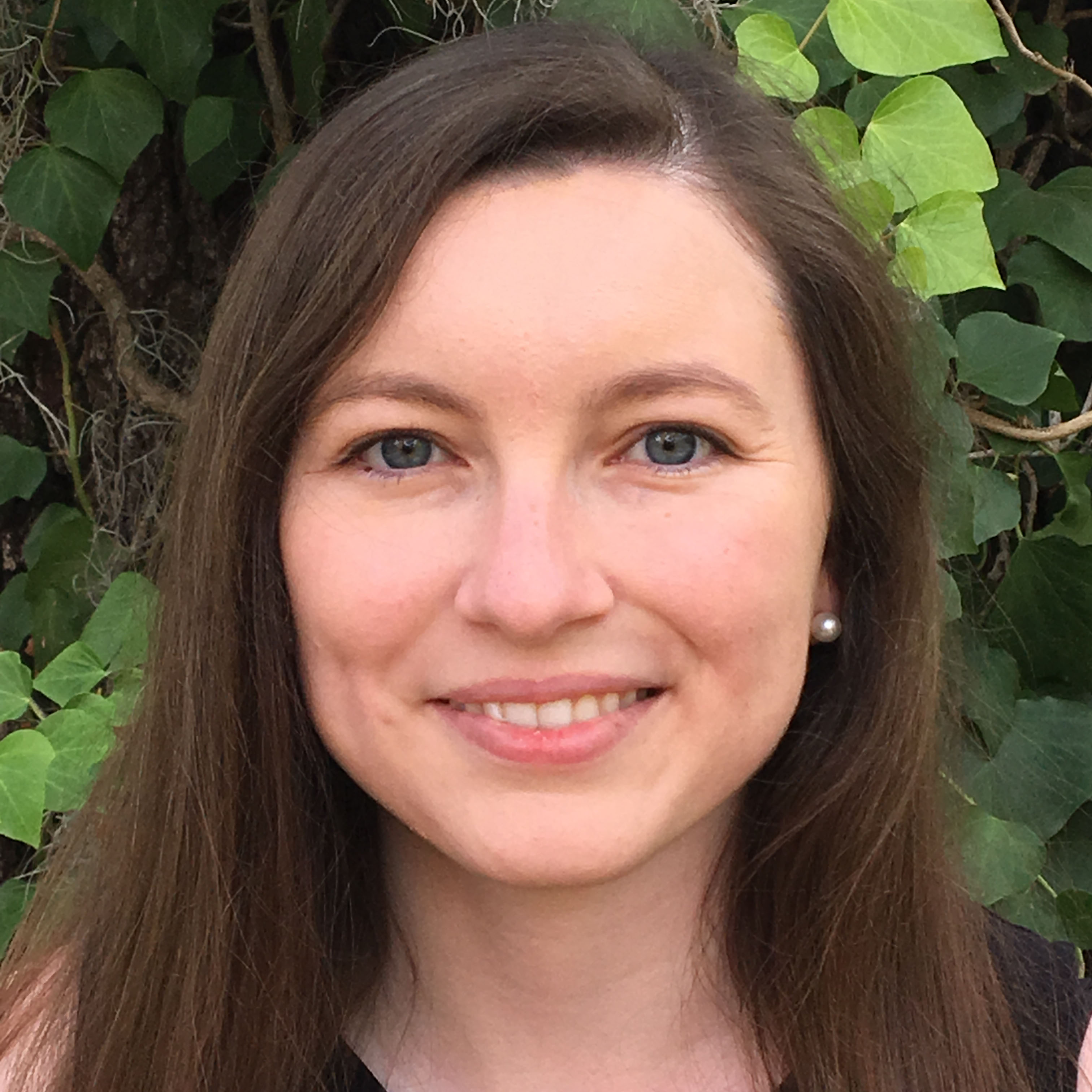 Emily Brooks is a PhD candidate at the University of Florida, specializing in history of the book, children’s literature and culture, and digital humanities (HASTAC and NEH Scholar). She is the instructor of self-designed UF courses such as Cod(ex)2position, Makeademia, Making Media Meta, Disney Then and Now, Disneyfication of American Literature and Culture, Survey of American Children’s Fantasy Literature, The History (and Future) of the Book, and Writing About Magic. Previous positions include production editor of ImageTexT: Interdisciplinary Comics Studies; co-instructor of Marston Science Library Arduino trainings; and THATCamp Gainesville committee planning member. Learn more at http://emilyfbrooks.com Twitter: @Emily_F_Brooks
Emily Brooks is a PhD candidate at the University of Florida, specializing in history of the book, children’s literature and culture, and digital humanities (HASTAC and NEH Scholar). She is the instructor of self-designed UF courses such as Cod(ex)2position, Makeademia, Making Media Meta, Disney Then and Now, Disneyfication of American Literature and Culture, Survey of American Children’s Fantasy Literature, The History (and Future) of the Book, and Writing About Magic. Previous positions include production editor of ImageTexT: Interdisciplinary Comics Studies; co-instructor of Marston Science Library Arduino trainings; and THATCamp Gainesville committee planning member. Learn more at http://emilyfbrooks.com Twitter: @Emily_F_Brooks
Michelle Campos, History
Jessica Casler, Anthropology PhD Student
Jimmy Chen, CISE PhD Student
Krista Cheyney, College of Education
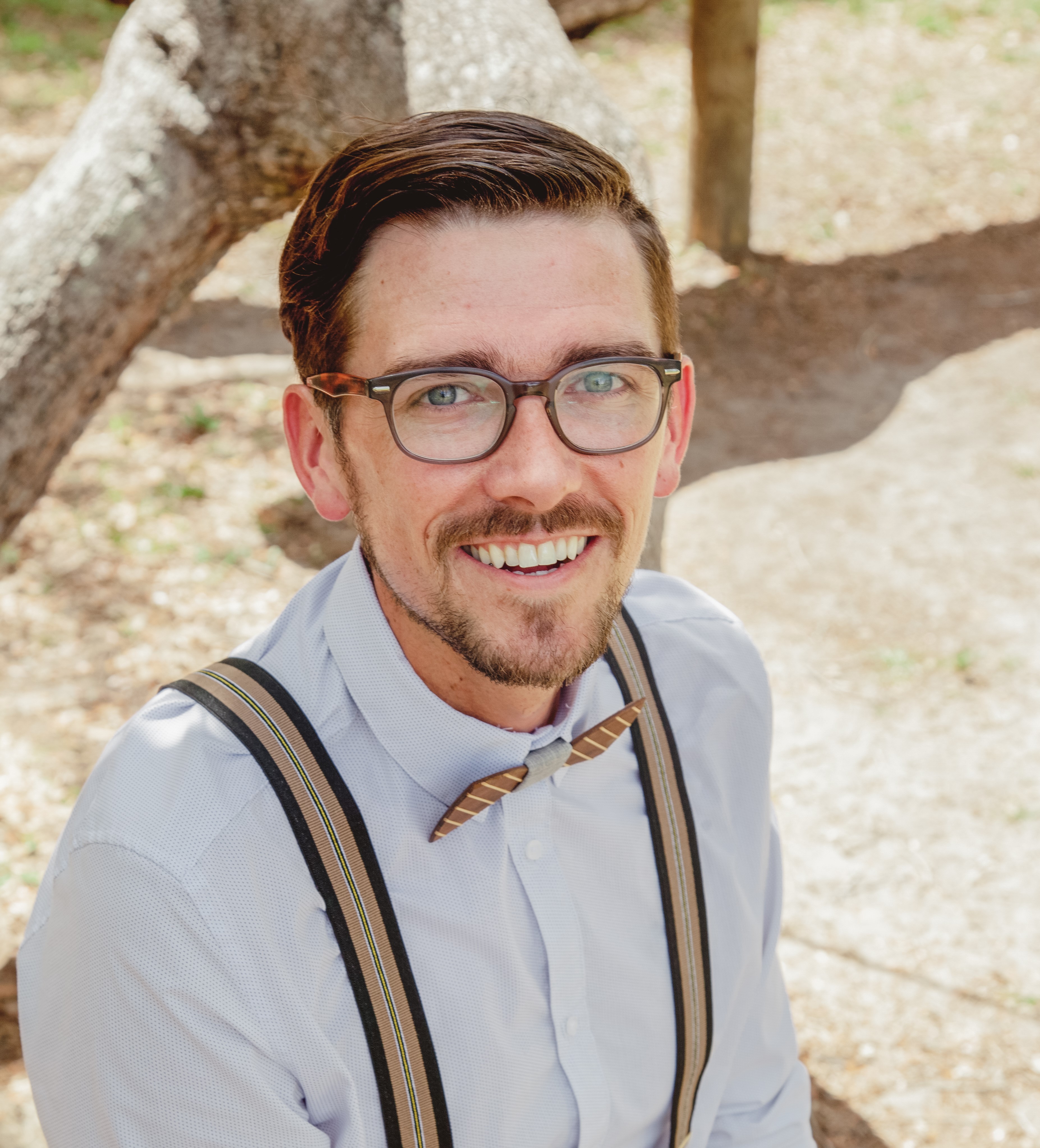 Ken Chitwood is a Ph.D. candidate in the Department of Religion (Americas, Global Islam). He is also a Program Coordinator with UF’s Center for the Humanities and the Public Sphere. His current interests include the ethnographic study of global Islam, Islam in the Americas, Puerto Rican Muslims, Christian-Muslim relations, the idea of Muslim cosmopolitanism, globalizing the study of religion, ethnographic practice in a digital age, and the interplay of religion and popular culture. Chitwood is also a religion newswriter, speaker, and blogger engaging in public and popular representations of the intersection of religion & culture. He is a member of the American Academy of Religion, the Latin American Studies Association, Theta Alpha Kappa, serves as Treasurer of the Religion News Association, and Vice-Chair of the Religion News Foundation. All of his published work — both academic and popular — can be found at www.kenchitwood.com and on Twitter at @kchitwood.
Ken Chitwood is a Ph.D. candidate in the Department of Religion (Americas, Global Islam). He is also a Program Coordinator with UF’s Center for the Humanities and the Public Sphere. His current interests include the ethnographic study of global Islam, Islam in the Americas, Puerto Rican Muslims, Christian-Muslim relations, the idea of Muslim cosmopolitanism, globalizing the study of religion, ethnographic practice in a digital age, and the interplay of religion and popular culture. Chitwood is also a religion newswriter, speaker, and blogger engaging in public and popular representations of the intersection of religion & culture. He is a member of the American Academy of Religion, the Latin American Studies Association, Theta Alpha Kappa, serves as Treasurer of the Religion News Association, and Vice-Chair of the Religion News Foundation. All of his published work — both academic and popular — can be found at www.kenchitwood.com and on Twitter at @kchitwood.
Perry Collins, Copyright & Open Educational Resources Librarian, Libraries
Jason Crider is a Graduate Research Fellow in the Department of English at the University of Florida, where he researches and teaches at the intersection of rhetoric, writing, and digital media studies. His scholarly interests include posthumanism, media ecology, and digital materialism. He has recently given presentations arguing for critical approaches to augmented reality and digital humanities scholarship.
Elizabeth Dale is a Professor of History and Law at the University of Florida. She the Graduate Coordinator for the Department of History and is one of the founding members of the Graduate Certificate in Digital Humanities Certificate and a member of the Certificate’s Board. She has taught a graduate level course in Digital History. In Spring 2016, she is co-teaching (with Laurie Taylor) the Digital Humanities Studio, the capstone course for the Digital Humanities Certificate. Website: http://people.clas.ufl.edu/edale/
Twitter: @ElizabethRDale
Paula de la Cruz-Fernández, Ph.D., coordinates the Myers-Briggs digitization project at the George A. Smathers Libraries Digital Support Services since 2017. She received her BA in History and MA in Anthropology from the Universidad de Granada (Spain) and her doctorate in History at Florida International University in Miami, Florida (United States) in 2013. Dr. de la Cruz-Fernández has years of experience as a research historian, editor, digital archivist, and translator.
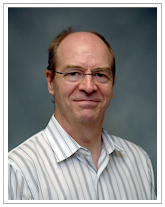 Erik Deumens has a PhD in computational nuclear physics and has worked with most computer and network architectures ever built. After several decades of active research in computational chemistry and molecular physics, which included engineering of complex software systems and teaching HPC, he is, since 2011, the director of Research Computing at the University of Florida. In the last three years, he has been responsible for building and operating an HPC environment for research with restricted data that meets FISMA and CUI requirements and is cost-effective within research budgets.
Erik Deumens has a PhD in computational nuclear physics and has worked with most computer and network architectures ever built. After several decades of active research in computational chemistry and molecular physics, which included engineering of complex software systems and teaching HPC, he is, since 2011, the director of Research Computing at the University of Florida. In the last three years, he has been responsible for building and operating an HPC environment for research with restricted data that meets FISMA and CUI requirements and is cost-effective within research budgets.
Chelsea Dinsmore is Director of Digital Production Services in Digital Services and Shared Collections of the Smathers Libraries. She served as the International Documents librarian at the University of Florida Libraries from 2004 to 2014. Beginning in 2009, she organized and managed a number of digital projects within the government documents department, including the creation of regional federal depository Centers of Excellence (COE) for the Panama Canal and the National Recovery Administration collections. She is currently involved in research to improve the accessibility of digital collections. Dinsmore holds an MLIS from the University of Texas at Austin and an MA in History from the University of Florida.
Mark Dinsmore, College of Education
Sid Dobrin, English
Fletcher Durant is the Preservation Librarian at the University of Florida. His work focuses on the preventive conservation of library and archival materials and the sustainability of cultural heritage. His research involves risk management, conservation treatment decision-making, collection housing solutions, and condition assessment surveys. He is a trained book and paper conservator and a Professional Associate of the American Institute for Conservation.
Twitter: @FlectcherDurant
Mary Ann Eaverly is Professor of Classics and Chair of the UF Classics Department, which houses the Digital Archaeology and Epigraphy Project. A classical archaeologist, her research interests include interconnections between Greece and Egypt and early Greek votive sculpture. Her most recent book is Tan Men, Pale Women: Color and Gender in Archaic Greece and Egypt. She also has strong inter-disciplinary interests. Together with Professor Marsha Bryant (UF English) she has published essays on modern women poets and ancient Mediterranean cultures in Modernism/modernity, Mosaic, and the MLA’s Approaches to Teaching H.D.’s Poetry and Prose. Recently, they curated the exhibit “Classical Convergences: Traditions & Inventions” at the Samuel P. Harn Museum of Art. Professor Eaverly is also a member of the IMOS (Impact of Materials on Society) project, a collaboration with the College of Engineering and is an affiliate faculty member of the Department of Art History.
Melissa Jerome is the Project Coordinator for the Florida and Puerto Rico Digital Newspaper Project. Jerome is currently responsible for all the day-to-day activities for the Florida and Puerto Rico Digital Newspaper Project, which includes all technical and administrative activities related to the digitizing of the selected newspapers, maintaining communication with the University of Puerto Rico-Rio Piedras, project vendors and the Library of Congress, as well as assisting with creating and managing a social media presence for the promotion of the project. Jerome received a BA in Criminology as well as an MS in Forensic DNA & Serology at UF. Jerome has been employed in the Smathers Libraries at UF for over seven years in various departments including Access Support in their Interlibrary Loan and Course Reserves department, as well as for the Circulation Department as acting supervisor for overnight hours.
Wanda Eugene, College of Engineering
Christy Gabbard, CoE, PK Yonge
Pamela Gilbert, English
Susan D. Gillespie is Professor of Anthropology at the University of Florida. She specializes in archaeological anthropology of pre-Hispanic Mesoamerica. Her research interests focus on cultural representations: artworks, writing and iconographic symbols, ceremonial architecture, ritual, and historical narratives. Her current project is a reconstruction of the ancient ceremonial center of La Venta (ca. 800-500 BC), creating new digitized maps from archived field records and using them to generate 3-D visualizations of the site during its different construction phases. Website: http://users.clas.ufl.edu/sgillesp/
Matt Gitzendanner is an Associate Scientist in the Biology Department at the University of Florida as well as the Training Coordinator for UF’s Research Computing where he teaches users across campus how to use the university’s computer cluster. He teaches courses on computational skills for researchers and is a co-PI on the NEH and UFII MassMine development grants.
Katerie Gladdys, College of the Arts
Sara Russell Gonzalez, Libraries
Edward Gonzalez-Tennant, Coutesy Faculty, Anthropology. Dr. Gonzalez-Tennant earned his PhD from UF (2011) for his work into the history of Rosewood, Florida (www.virtualrosewood.com). He has published widely on the intersection between heritage and technology, including the use of virtual reality and GIS to translate scholarly research into public knowledge. He also serves as the Chief Technical Officer for Digital Heritage Interactive LLC (www.digital-heritage.net), a digital heritage firm based in Gainesville, Florida.
Terry Harpold, English
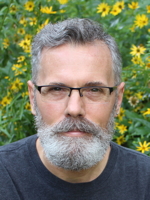 Terry Harpold is Associate Professor of English, Film, and Media Studies at the University of Florida. His research and teaching interests include science fiction and film, environmental humanities, animal studies, digital humanities, image-text studies, and psychoanalysis. He is co-founder of UF’s Science Fiction Working Group, and founder of UF’s Imagining Climate Change initiative. He is one of the founding members of the Graduate Certificate in Digital Humanities and a member of the Certificate’s board.
Terry Harpold is Associate Professor of English, Film, and Media Studies at the University of Florida. His research and teaching interests include science fiction and film, environmental humanities, animal studies, digital humanities, image-text studies, and psychoanalysis. He is co-founder of UF’s Science Fiction Working Group, and founder of UF’s Imagining Climate Change initiative. He is one of the founding members of the Graduate Certificate in Digital Humanities and a member of the Certificate’s board.
Michelle Harris, CWSGR
Will Hasty, LLC, German
Haven Hawley is Chair of the Department of Special & Area Studies within the Libraries which encompasses collections of unique and special types of materials (e.g., rare books, archives, and manuscript collections) and interdisciplinary collections pertaining to geographical, national or cultural regions. As a History of Science Scholar, Hawley investigates material formats in relation to readers and reader communities; research which informs digital reading technologies and modalities.
Ben Hebblethwaite, Languages, Literatures and Cultures
Richard Heipp, Art + Art History, art and visualization
Julie Henderson, PK Yonge
Emily Hind is an Associate Professor with the University of Florida and the author of Boob Lit: Femmenism and the Mexican Woman Intellectual from Sor Juana to Poniatowska (Palgrave Macmillan 2010), as well as two books of interviews with Mexican writers. She has published numerous articles on Mexican literature and film. Topics such as debt, drugs, piracy, the middle class, and the history of emotions occupy her latest work. Analytic angles in some of her recent articles use disability studies to think about the nature of narrative and experimental literature, and fat studies to contemplate the messages regarding cool personalities in children’s literature.
April Hines, Libraries
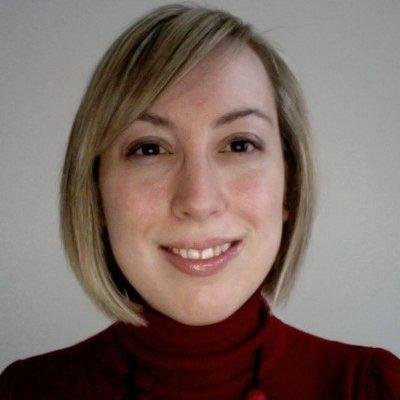 Hélène Huet is the European Studies Librarian at the University of Florida. She launched Mapping Decadence in 2014 (http://mappingdecadence.org), a website dedicated to her digital mapping project, which analyzes the role location played in shaping relationships between authors and publishers in late 19th century France. As the digital humanist and the Vice-Chair of the Florida Digital Humanities Consortium (FLDH), a collective of institutions in Florida that seeks to promote an understanding of the humanities in light of digital technologies and research, she is particularly interested in studying how digital tools can help facilitate students and faculty’s research. Finally, as the Chair of the Collection Development Working Group of the Collaborative Initiative for French Language Collections (CIFNAL), she is currently overseeing the creation of a list of French and Francophone Digital Humanities projects (http://guides.uflib.ufl.edu/frdhprojects). Website: https://helenehuet.org./
Hélène Huet is the European Studies Librarian at the University of Florida. She launched Mapping Decadence in 2014 (http://mappingdecadence.org), a website dedicated to her digital mapping project, which analyzes the role location played in shaping relationships between authors and publishers in late 19th century France. As the digital humanist and the Vice-Chair of the Florida Digital Humanities Consortium (FLDH), a collective of institutions in Florida that seeks to promote an understanding of the humanities in light of digital technologies and research, she is particularly interested in studying how digital tools can help facilitate students and faculty’s research. Finally, as the Chair of the Collection Development Working Group of the Collaborative Initiative for French Language Collections (CIFNAL), she is currently overseeing the creation of a list of French and Francophone Digital Humanities projects (http://guides.uflib.ufl.edu/frdhprojects). Website: https://helenehuet.org./
Twitter: @superHH
Jinyi Hung, Speech, Language, Hearing PhD Student
Diedre F. Houchen is a Postdoctoral Associate for the Center for the Study of Race and Race Relations. Her research and writing focus on race, education and history. She is published in the areas of urban education, teaching, and learning. Her current projects consider Black life in Florida during Jim Crow. She has taught undergraduate and graduate race and education, history of education, and teacher education courses.
Rebecca Jefferson, Libraries
Melissa Johnson, Honors Program
 Madison Jones is a PhD candidate in rhetoric and writing studies at the University of Florida. His research explores the role of place and environment in networked writing and has appeared or is forthcoming in Rhetoric Review, Kairos, and Enculturation. He teaches courses in digital rhetoric, composition, and professional writing. His scholarship and teaching intersect ecocomposition, creative writing studies, posthumanism, and digital rhetoric. He is the author of the poetry collection Reflections on the Dark Water (Solomon & George 2016) and his poems have appeared or are forthcoming in journals such as Michigan Quarterly Review, North American Review, and Prairie Schooner. For more information, visit madisonpjones.com.
Madison Jones is a PhD candidate in rhetoric and writing studies at the University of Florida. His research explores the role of place and environment in networked writing and has appeared or is forthcoming in Rhetoric Review, Kairos, and Enculturation. He teaches courses in digital rhetoric, composition, and professional writing. His scholarship and teaching intersect ecocomposition, creative writing studies, posthumanism, and digital rhetoric. He is the author of the poetry collection Reflections on the Dark Water (Solomon & George 2016) and his poems have appeared or are forthcoming in journals such as Michigan Quarterly Review, North American Review, and Prairie Schooner. For more information, visit madisonpjones.com.
Brian W. Keith is the Associate Dean for Administration and Faculty Affairs. He is the senior administrator for the areas of Human Resources, Staff Development, Grants Management, Facilities and Security, and Finance and Accounting for the UF Libraries, directing the areas for recruitment; employee relations; compensation plan design and administration; performance management; tenure and promotion administration; and grants administration. He also develops and maintains budgets and management reports to provide in-depth analyses of pertinent financial activities to maximize the capacity Libraries’ resources. He is the PI on the Community Engagement Engine and ARL PD Bank grants, co-PI on the Mellon-funded project Books about Florida and the Caribbean, and leader of the Libraries’ Graduate Student Internship Program. Brian’s research focuses on public scholarship and impact through and with libraries in the digital age.
Tony Kolenic, College of the Arts
Paul Koonce, Music
Gillian Lord is Chair of the Department of Spanish and Portuguese Studies and Associate Professor of Hispanic Linguistics. Her research revolves around instructed foreign language acquisition, in other words, how students learn languages in a classroom and other ‘formal’ contexts, and how instructors and administrators can maximize that process. One of her main focuses in this area is on the role of technology in those processes. She is currently co-authoring the first native-digital beginning Spanish text and is thus fully immersed in the world of digital teaching and learning!
Katie Matthew, Museum Studies
Jessica Marcetti, Libraries
Carol McAuliffe is the Map Librarian and Head of the Map & Imagery Library at the University of Florida. The collection boasts over 500,000 maps, including over 2,000 antique maps, as well as over 300,000 aerial photographs of Florida. Many of the antique maps and aerial photographs are digitized and available through the libraries’ digital collections. Carol’s research interests include the use geospatial technologies in the Digital Humanities, online mapping tools, and the use of these technologies in Humanities instruction. Her paper “Geoliteracy through Aerial Photography: Collaborating with K-12 Educators to Teach the National Geography Standards” won the Journal of Map and Geography Libraries 2013 Best Paper Award.
Kyla McMullen, CSE
George Michalidis, Informatics Institute
Val Minson, Smathers Libraries
Sarah “Moxy” Moczygemba, Smathers Libraries
Bonnie Moradi, Psychology
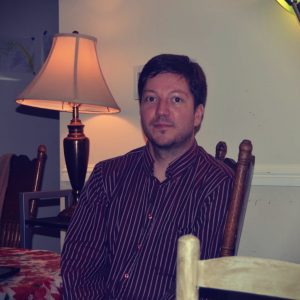 Francisco Morales received his PhD in Romance Languages-Spanish from the University of Florida in May 2018. His dissertation research focused on the nationalism in Spain through the profession of archeology, and he continues to do politics and cultural research within European and American contexts. He has been a graduate assistant at UF since 2010, with the support of the Department of Spanish and Portuguese Studies, and the UF Libraries. He also has a certificate in Latin American Studies, and an MA in Spanish, both from UF. He also earned degrees in History and Digital Humanities from two different universities in Spain. At the Samuel Proctor Oral History Program, Francesc is involved in the project History of Jewish Community in El Salvador, as part of a larger project known as Latina/o Diaspora in the Americas Project. This work consists in digital production coupled with transcription and translation of Spanish-language materials along with conducting oral history interviews on Hispanic history
Francisco Morales received his PhD in Romance Languages-Spanish from the University of Florida in May 2018. His dissertation research focused on the nationalism in Spain through the profession of archeology, and he continues to do politics and cultural research within European and American contexts. He has been a graduate assistant at UF since 2010, with the support of the Department of Spanish and Portuguese Studies, and the UF Libraries. He also has a certificate in Latin American Studies, and an MA in Spanish, both from UF. He also earned degrees in History and Digital Humanities from two different universities in Spain. At the Samuel Proctor Oral History Program, Francesc is involved in the project History of Jewish Community in El Salvador, as part of a larger project known as Latina/o Diaspora in the Americas Project. This work consists in digital production coupled with transcription and translation of Spanish-language materials along with conducting oral history interviews on Hispanic history
Louise Newman, History
Steve Noll, History
Susan O’Brien, History
Kole Odutola, Languages, Literatures, & Cultures
Lauren Pearlman, History
Jorg Peters, CISE, computer graphics, geometric computing, visualization
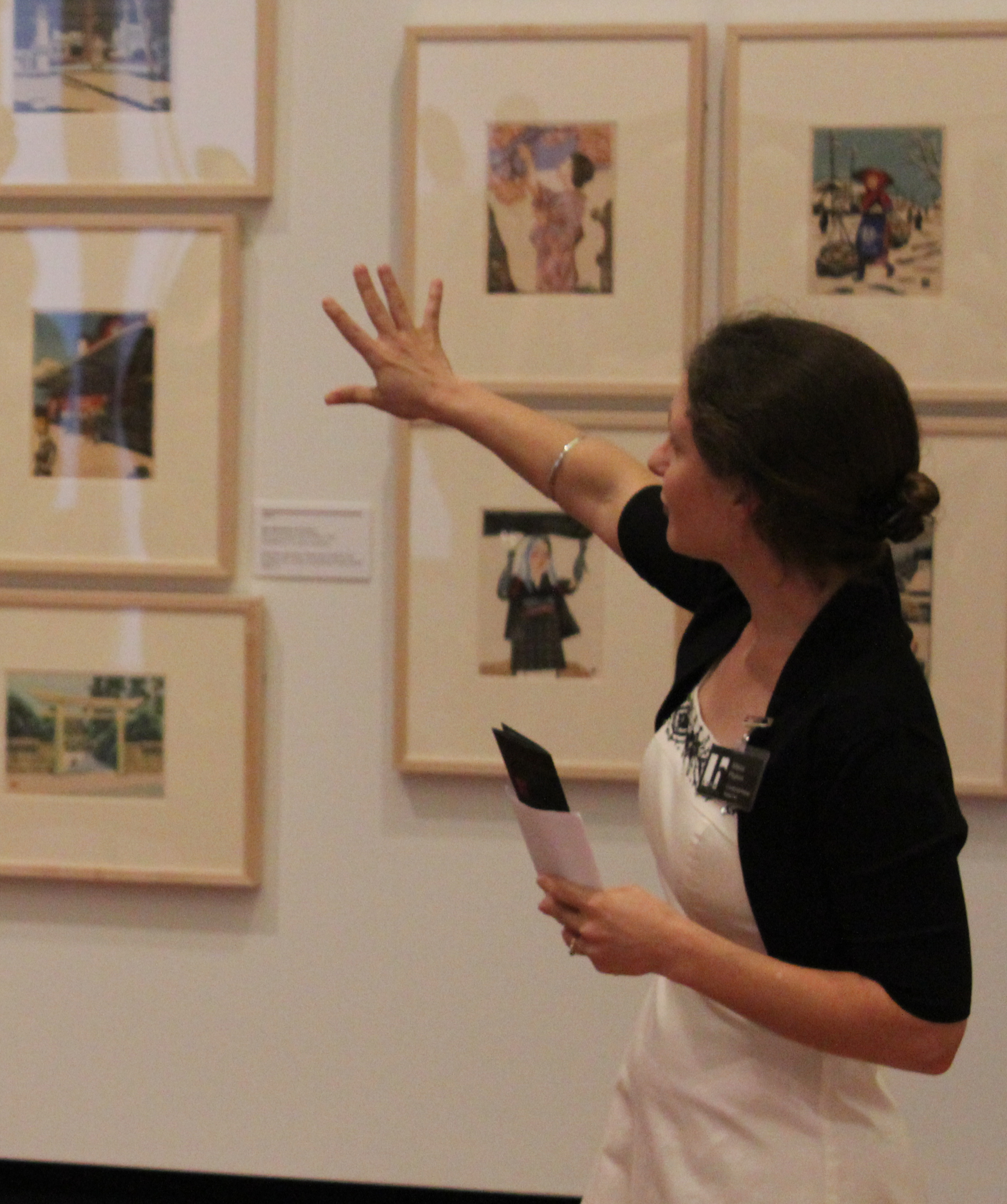 Allysa B. Peyton is the Assistant Curator of Asian Art and serves as the series co-editor for the David A. Cofrin Asian Art Manuscript Series. Her research interests include South Asian art and the relationships between art of the subcontinent and the whole of Asia; pan-Asian religion; food history; museology; and ritual, performance, and sacred geography as they relate to the visual arts. Peyton has taught honors courses at the University of Florida, humanities courses at Santa Fe College and serves as Affiliated Faculty for the UF’s Center for the Study of Hindu Traditions (CHiTra).
Allysa B. Peyton is the Assistant Curator of Asian Art and serves as the series co-editor for the David A. Cofrin Asian Art Manuscript Series. Her research interests include South Asian art and the relationships between art of the subcontinent and the whole of Asia; pan-Asian religion; food history; museology; and ritual, performance, and sacred geography as they relate to the visual arts. Peyton has taught honors courses at the University of Florida, humanities courses at Santa Fe College and serves as Affiliated Faculty for the UF’s Center for the Study of Hindu Traditions (CHiTra).
J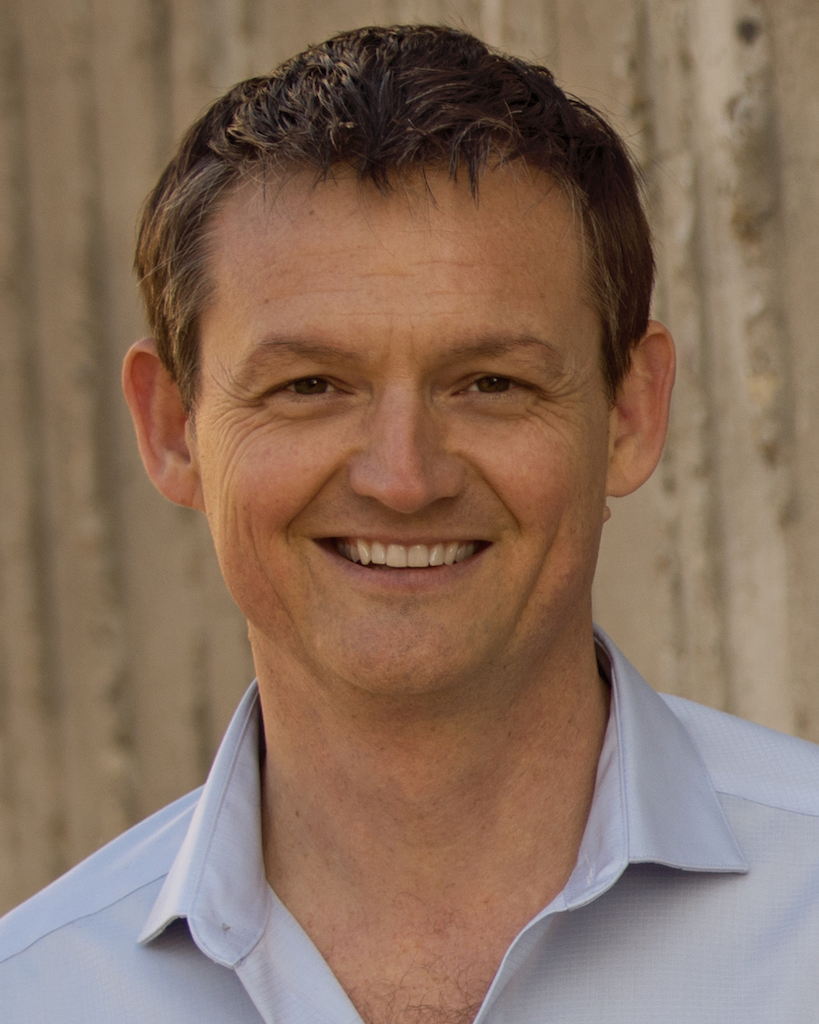 effrey Pufahl is a Lecturer in the Center for Arts in Medicine. Jeffrey holds an MFA in Theater Performance (University of Cincinnati) and an MFA in Theater Directing (University of Victoria) and has 25 years of professional experience in film and theatre in Canada, the US, and the UK. His work at UF is focused on creating and using theatre to address social issues and community health. His research looks at innovative applications of theatre and video to health, social, and educational content in order to engage the public in critical dialogue. Recently, Jeffrey was a Creative Campus Scholar in Residence in the Samuel Proctor Oral History Program and where he developed a critical oral history performance for social justice program. His collaborative, ethnographic play Voices from the March documents the 2017 Women’s March on Washington and Trump Inauguration through the eyes of the students who attended.
effrey Pufahl is a Lecturer in the Center for Arts in Medicine. Jeffrey holds an MFA in Theater Performance (University of Cincinnati) and an MFA in Theater Directing (University of Victoria) and has 25 years of professional experience in film and theatre in Canada, the US, and the UK. His work at UF is focused on creating and using theatre to address social issues and community health. His research looks at innovative applications of theatre and video to health, social, and educational content in order to engage the public in critical dialogue. Recently, Jeffrey was a Creative Campus Scholar in Residence in the Samuel Proctor Oral History Program and where he developed a critical oral history performance for social justice program. His collaborative, ethnographic play Voices from the March documents the 2017 Women’s March on Washington and Trump Inauguration through the eyes of the students who attended.
 Raja Rahim is a Ph.D. candidate in the Department of History. As an American historian, her research focuses on the participation of African American in the development of American sports culture. Her pervious research explored the coaching career of John B. McLendon and the origins of black basketball in North Carolina during the era of segregation. Currently, she is doing research on the history of athletic integration and the athletic career of Ronald Colemen at the University of Florida in the late 1960s.
Raja Rahim is a Ph.D. candidate in the Department of History. As an American historian, her research focuses on the participation of African American in the development of American sports culture. Her pervious research explored the coaching career of John B. McLendon and the origins of black basketball in North Carolina during the era of segregation. Currently, she is doing research on the history of athletic integration and the athletic career of Ronald Colemen at the University of Florida in the late 1960s.
Priyanka Ramlakhan
Patrick Reakes, Smathers Libraries
Dan Reboussin is African Studies curator in the Special & Area Studies Collections Department, University of Florida George A. Smathers Libraries. Supporting over 130 affiliated research and teaching faculty in at least ten of UF’s sixteen colleges, his library specialties include collection development and curation for circulating, digital, and archival materials. He manages public services and interdisciplinary liaison between library and Center for African Studies programs, offers a one-credit graduate course on library research methods and scholarly information literacy, and improves access to UF’s unique digital collections using Search Engine Optimization to emphasize scholarly context. Campus Guide page: http://guides.uflib.ufl.edu/african_studies
Twitter: @danrebo
Jamie Reilly, Speech, Language, Hearing
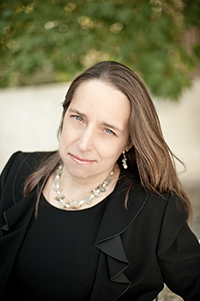 Leah Rosenberg is associate professor and graduate coordinator in the Department of English at the University of Florida and author of Nationalism and the Formation of Caribbean Literature (2007) and co-editor with J. Dillon Brown of Beyond Windrush: Rethinking Postwar Anglophone Caribbean Literature (2015). She serves on the academic advisory board for the Digital Library of the Caribbean (www.dloc.com ) and has designed and taught the intercollegiate, collaborative, hybrid course, “Panama Silver, Asian Gold: Reimagining Diasporas, Archives, and the Humanities” with Donette Francis (University of Miami) and Rhonda Cobham-Sander (Amherst College) with the assistance of librarians and archivists at UF, UM, and Amherst. Information about the course is available: http://dloc.com/digital/panamasilver
Leah Rosenberg is associate professor and graduate coordinator in the Department of English at the University of Florida and author of Nationalism and the Formation of Caribbean Literature (2007) and co-editor with J. Dillon Brown of Beyond Windrush: Rethinking Postwar Anglophone Caribbean Literature (2015). She serves on the academic advisory board for the Digital Library of the Caribbean (www.dloc.com ) and has designed and taught the intercollegiate, collaborative, hybrid course, “Panama Silver, Asian Gold: Reimagining Diasporas, Archives, and the Humanities” with Donette Francis (University of Miami) and Rhonda Cobham-Sander (Amherst College) with the assistance of librarians and archivists at UF, UM, and Amherst. Information about the course is available: http://dloc.com/digital/panamasilver
Melody Royster, Smathers Libraries
Krista Ruggles, College of Education
Jessica Sabo, UFIT
Whitney Sanford, Religion
Lourdes Santamaria-Wheeler, Smathers Libraries
Edward Schaefer, College of the Arts
David Schwieder, Smathers Libraries
Darbi Shannon, College of Education
Judy Shoaf has run the Language Learning Center at UF since 1993, from the days of cassette tape and a 286 lab through the coming of the Web and the clouds. Her background is in Medieval Studies, with a Ph.D. in French from Cornell, and a thesis looking at the Tristan of Thomas of Britain. For 20 years she was managing editor of Exemplaria: A Journal of Theory in Medieval and Renaissance Studies. She sometimes teaches a course on King Arthur at UF. She is interested in copyright and intellectual property problems.
Plato Smith, Libraries
Kristy Spear, Honors Program
Laura Spears is a PhD candidate and Associate Assessment Librarian with the George A. Smathers Libraries, University of Florida. Her dissertation examines and assesses library value as expressed in social media used for public library funding advocacy. She functioned as the Research Coordinator for the Information Use Management and Policy Institute (Institute) at the Florida State University, where she directed the daily research activities for multiple projects including a four-year National Science Foundation ATE grant examining the alignment of community college IT curriculum with rural employer needs. She also coordinated efforts for the Florida IT Career (FITC) Alliance assessment completed by the Institute in a one-year Florida Board of Governors IT education study. Her publications include several studies of technology deployment in diverse communities including studies of children, broadband access and broadband measurement in public libraries and multiple publications on IT education with the Institute. She is expanding her doctoral research on library values assessment to the academic realm in her role as Assessment Librarian.
Twitter: @yenscott
Mike Spranger, IFAS
Suzanne Stapleton is an Agricultural Sciences and Digital Initiatives Librarian at the University of Florida. Her work includes digitization projects for the sciences with an emphasis on preservation of the agricultural record. She has conducted agricultural research in the U.S., Mexico, and Central America. She supports open access publishing and serves on the UF Open Journal System Service Team and the Scholarly Communications Task Force. She attended THATCamp Gainesville in Spring 2015.
Jack Stenner, Art
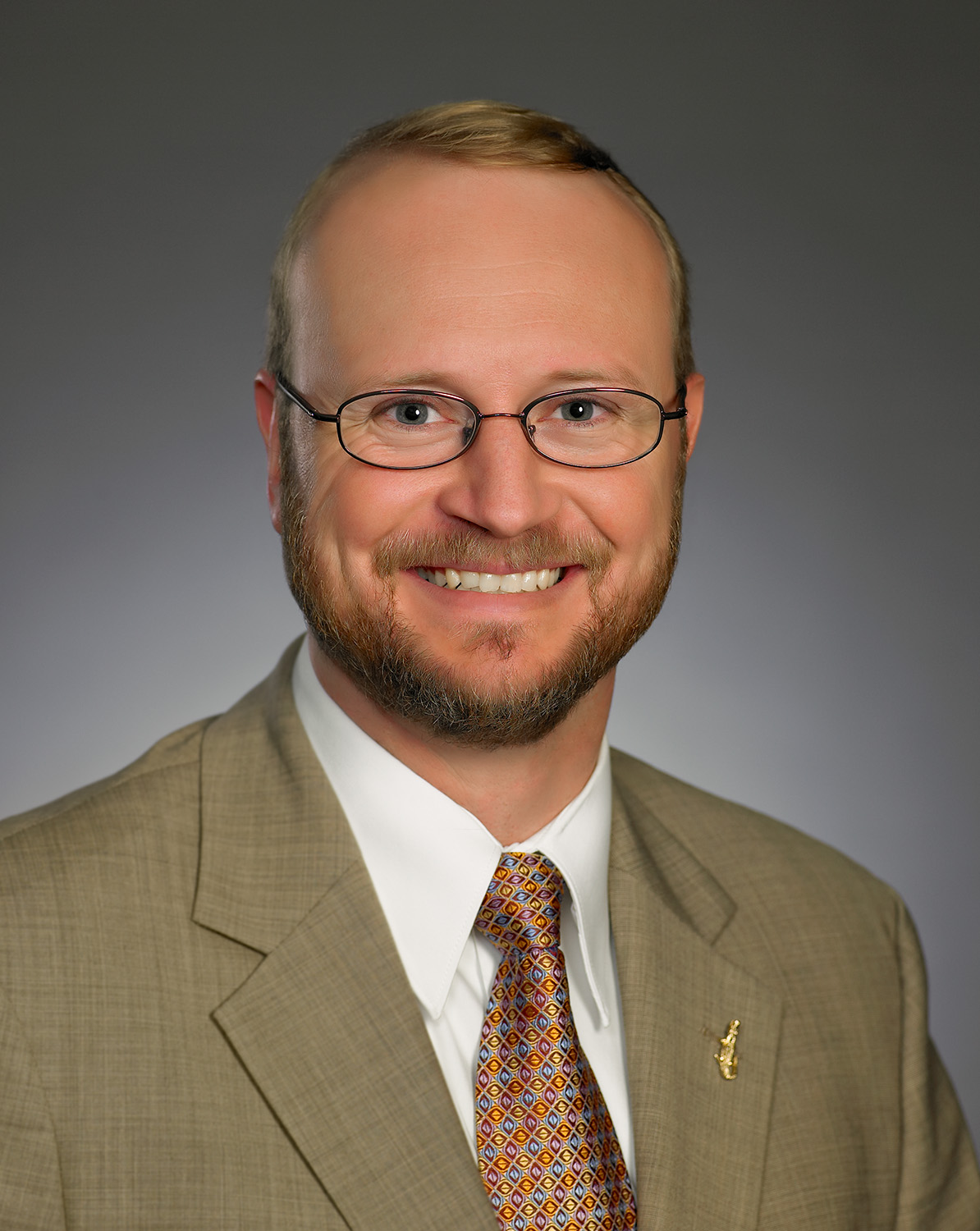 Jason Steuber is Asian art expert with over 20 years of curatorial and project management experience with AAM-accredited (American Alliance of Museums) museums. Steuber was appointed as the Cofrin Curator of Asian Art at the Samuel P. Harn Museum of Art in 2008. He oversees the collection of over 3,000 works of art from China, Japan, Korea, India, the Himalayas and Southeast Asia. Overseeing the new 26,000 sq. ft. David A. Cofrin Asian Art Wing which opened in 2012, he actively builds the museum’s collection of Asian art. His research interests include the history of collecting and exhibiting Asian art and the relationship between traditional and contemporary art throughout Asia. He is the editor of the David A. Cofrin Asian Art Manuscript series.
Jason Steuber is Asian art expert with over 20 years of curatorial and project management experience with AAM-accredited (American Alliance of Museums) museums. Steuber was appointed as the Cofrin Curator of Asian Art at the Samuel P. Harn Museum of Art in 2008. He oversees the collection of over 3,000 works of art from China, Japan, Korea, India, the Himalayas and Southeast Asia. Overseeing the new 26,000 sq. ft. David A. Cofrin Asian Art Wing which opened in 2012, he actively builds the museum’s collection of Asian art. His research interests include the history of collecting and exhibiting Asian art and the relationship between traditional and contemporary art throughout Asia. He is the editor of the David A. Cofrin Asian Art Manuscript series.
Websites: http://www.harn.ufl.edu/collections/asian; http://exhibits.uflib.ufl.edu/harnkoreanart/
Robert Taber, History
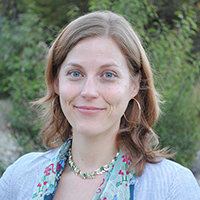 Laurie N. Taylor is the Digital Scholarship Librarian at the University of Florida. Her work focuses on data/digital curation, digital scholarship, and developing socio-technical supports (people, policies, technologies, communities) for scholarly cyberinfrastructure. This includes work to develop, sustain, and integrate digital scholarship across communities and to foster an environment of radical collaboration. She is the Technical Director for the international collaborative Digital Library of the Caribbean (dLOC), founding Steering Committee Member for the Florida Digital Humanities Consortium (FLDH), and member of the UF DH Graduate Certificate Committee. Website: www.laurientaylor.org
Laurie N. Taylor is the Digital Scholarship Librarian at the University of Florida. Her work focuses on data/digital curation, digital scholarship, and developing socio-technical supports (people, policies, technologies, communities) for scholarly cyberinfrastructure. This includes work to develop, sustain, and integrate digital scholarship across communities and to foster an environment of radical collaboration. She is the Technical Director for the international collaborative Digital Library of the Caribbean (dLOC), founding Steering Committee Member for the Florida Digital Humanities Consortium (FLDH), and member of the UF DH Graduate Certificate Committee. Website: www.laurientaylor.org
Twitter: @laurien
David Therriault, College of Education
Jennifer Thomas, Musicology
Leslie Todd, Art History, student
George Topalidis, Classics
Trysh Travis, Center for Women’s Studies and Gender Research
Joyce Tsai, Art History
Gregory Ulmer, English
Karina A. Vado is a PhD student in the Department of English at the University of Florida. Her primary areas of research include African-American and Chican@/Latin@ cultural studies, multi-ethnic science fiction and fantasy, critical race and gender studies, feminist digital humanities, and utopian studies. Karina is a Florida Education Fund McKnight Doctoral Fellow, as well as a SWPACA Michael K. Schoenecke Leadership Institute Fellow. She received her MA in Women’s Studies from the University of Florida in 2014.
Twitter: @KarinaAVado
David Van Kleeck, Smathers Libraries
Margarita Vargas-Betancourt, Smathers Libraries
Brandon Vega, UFIT
Marcela Varona, Art History
Mary Watt, LLC
Velvet Yates, Classics
Jeffrey Yeakel, Classics
Digital Humanities: UF Groups
Digital Humanities projects are frequently collaborative in nature, often involving a team of subject specialists (from humanities disciplines) together with faculty and staff from the information, computer, and library sciences. Graduate and undergraduate students in the humanities discipline (who may have specific training in digital tools and applications) can play important mediating roles in these projects while also cultivating research and career skills. As described below, there are a variety of UF faculty and facilities interested in such collaborative endeavours. Details on student training opportunities and certificate programs are included where available.
- Center for the Humanities and the Public Sphere
- UF Research Computing, including the High Performance Computing Center – – A UF-supported resource that enables faculty to carry out data-intensive research involving, for example, large corpora of data, texts, or images.
- Art and Architecture Fab-Lab
- Art + Technology Program (School of Art + Art History) – Potential student and faculty collaboration. BFA and MFA in creative practice involving a range of technologies
- Digital Humanities Library Group (DHLG); UF Smathers Libraries (data curation, subject liaison librarians, Scholarly Communications, and much more!)
- Center for Instructional Technology & Training – Provides collaborative assistance with digital teaching and learning projects, including online courses, Web development, and pedagogical techniques.
- Department of Computer & Information Science & Engineering – Interest in faculty/student collaborations in many project areas across the humanities.
- Digital Worlds Institute – Interest in faculty collaborations in many areas including 3D modeling (e.g., of spaces, artifacts), game design, and interactive storytelling. Also offer a 12-credit certificate in Digital Arts and Sciences for undergraduate and graduate students.
- Center for Advanced Construction Information Modeling (DCP) – Interest in faculty collaborations to build virtual 3D models and visualizations of physical sites, virtual collaboration and team-building, and the sustainability of virtual models.
- GIS Spatial Information Service Unit The GIS Librarian is available to consult with faculty, staff and students on all aspects of spatially referenced data and GIS software, including Google Earth. Large format plotting services are available for U.S. Government electronic maps and images, and archival maps in the Map and Imagery Library can be georeferenced for historical analysis. Students can also obtain a 15-credit interdisciplinary certificate in Geographic Information Systems.
- Center for Media Innovation and Research, College of Journalism & Communications – Digital lab facilities for building and examining social interaction in online media environments.